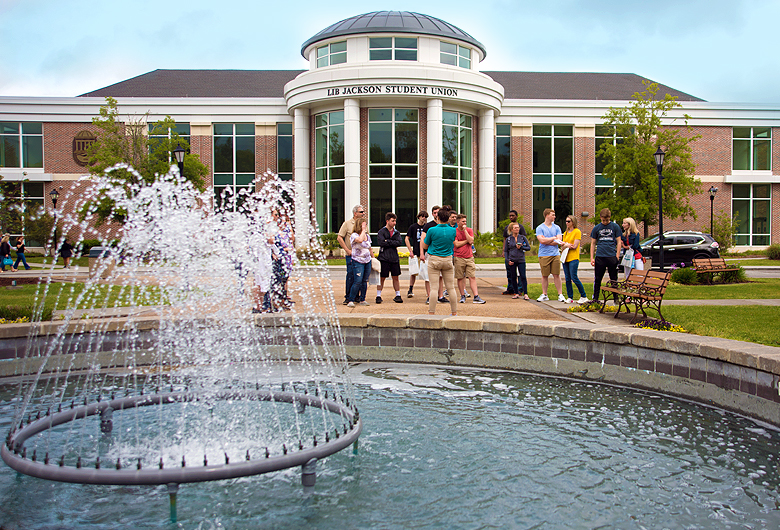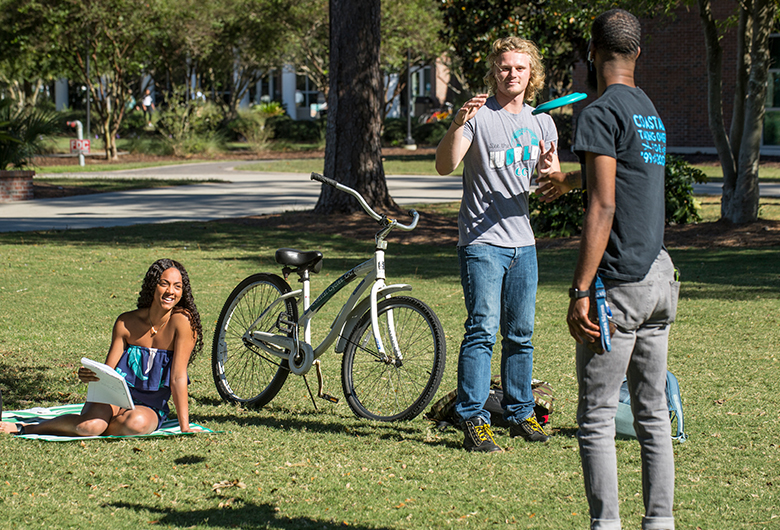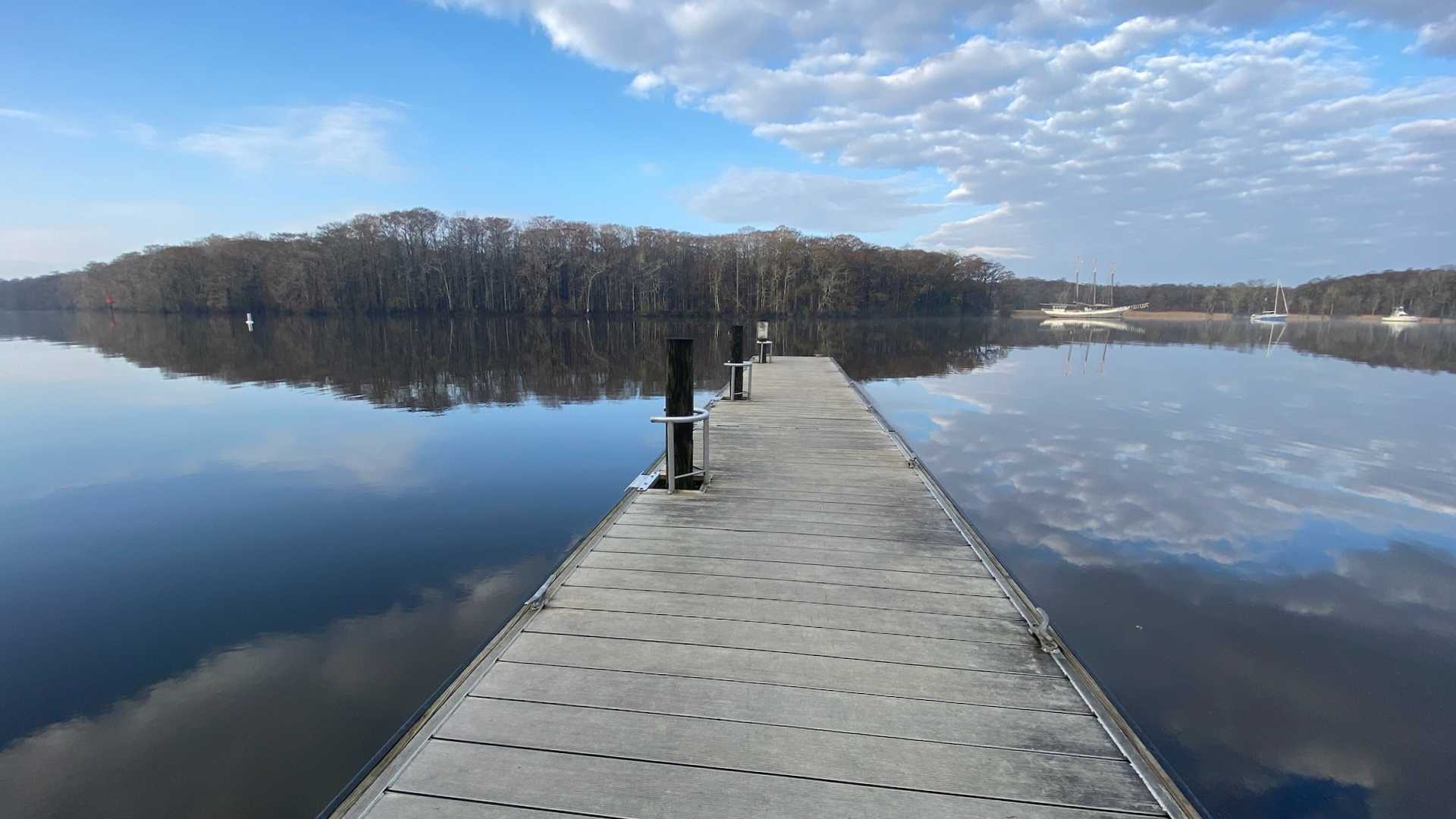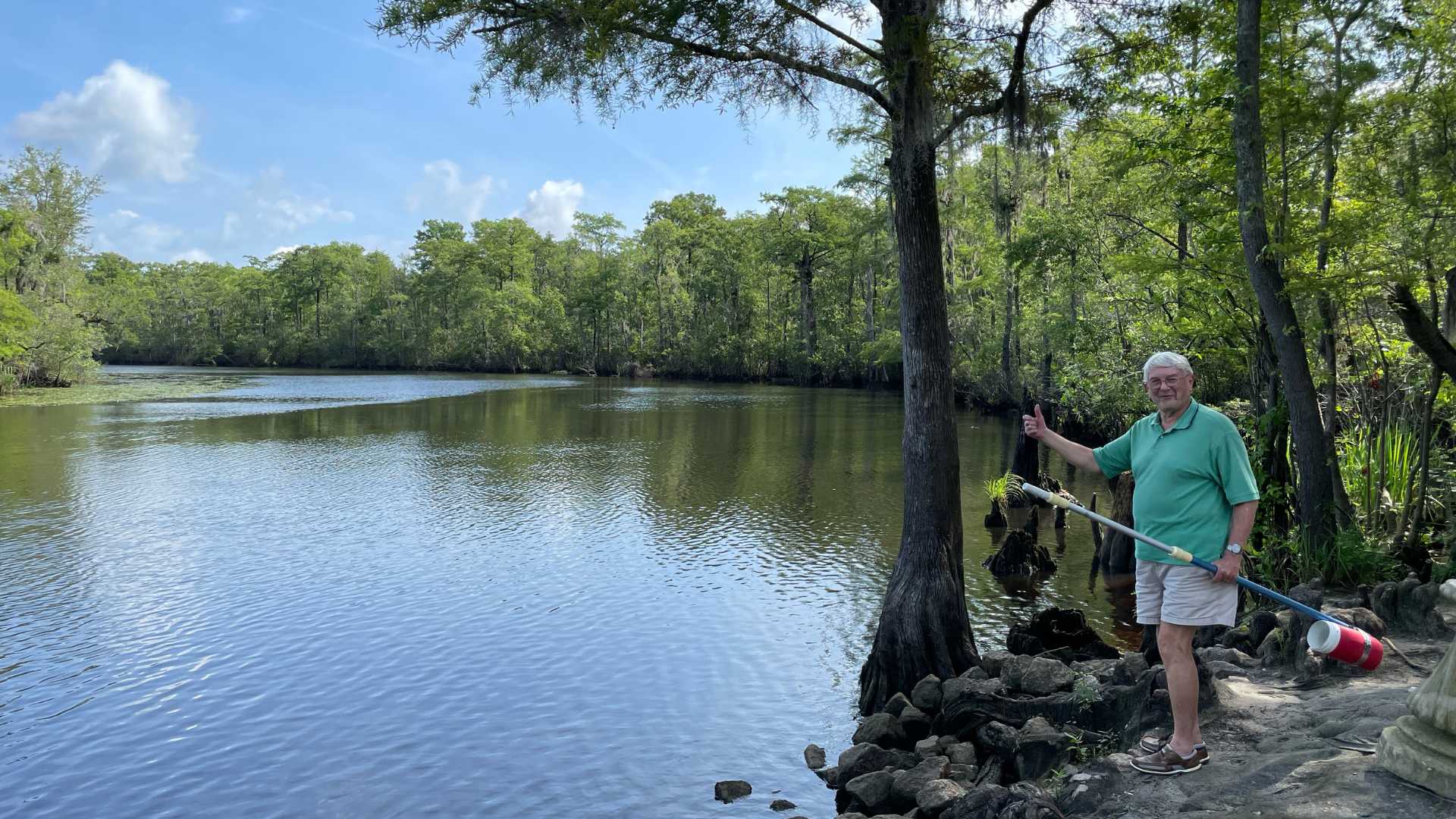Waccamaw River Volunteer Water Quality Monitoring
Volunteers monitor the health of the Waccamaw River across state lines
The volunteer monitoring program on the Waccamaw River was established in 2006 with teams of volunteers monitoring 12 sites biweekly along the Waccamaw River in South Carolina. In 2011, the program was extended to six additional sampling sites in North Carolina along the river and in Lake Waccamaw.
In the Waccamaw River, water quality concerns include low oxygen levels and occasional contamination by fecal bacteria and sediment. The oxygen concern has led to the implementation of a Total Maximum Daily Load (TMDL) for the river downstream of Conway. The implementation activities include permitted discharges of treated effluent from publicly owned treatment works and reduction of nonpoint source pollution through the small MS4’s stormwater management plans. An important question being answered through monitoring the Waccamaw River is whether oxygen levels are being adequately controlled. Additionally, turbidity monitoring evaluates whether sediment and erosion control management through construction and post-concentration permits are adequate. Occasional contamination in fecal bacteria is associated with stormwater runoff with controls to be implemented through the MS4’s stormwater management programs.
This volunteer-based program is administered by Coastal Carolina University’s Waccamaw Watershed Academy in partnership with the Waccamaw RIVERKEEPER® Program of the Winyah Rivers Alliance. The latter is a 501(c)(3) nonprofit organization that monitors, advocates, and protects the Waccamaw River and the greater Winyah Bay Watershed. Past funding partners for the program on the South Carolina portion of the Waccamaw River include: U.S. Environmental Protection Agency (through a four-year Wetlands Program Development Grant, 2005-2009), the City of Conway, and Horry and Georgetown Counties.
In North Carolina, the program is funded by grants from International Paper, Z. Smith Reynolds Foundation, Friends of Lake Waccamaw State Park, and Columbus County with volunteer support from Lake Waccamaw State Park and Southeastern Community College.







